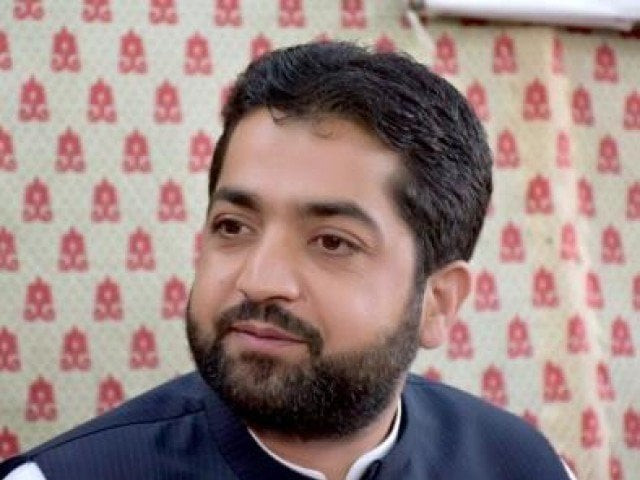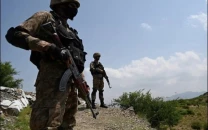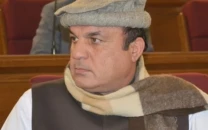No compromise on supremacy of law: Balochistan home minister
Langove chairs third meeting of steering committee on rule of law roadmap

Meer Ziaullah Langove. PHOTO: EXPRESS
“The government will ensure that laws are implemented. We are taking effective measures to ensure law and order in Balochistan,” Langove said on Tuesday while chairing a steering committee meeting on “Rule of Law Roadmap”.
The Rule of Law Roadmap of Balochistan is a model of good practice encompassing government ownership, a partnership between the state and society, and promotion of a whole-of-government approach wherein the judiciary is engaged through its own structure, Provincial Justice Committee (PJC).
This endeavour was developed under the umbrella of a joint programme with the United Nations Development Programme (UNDP) and UN Women, with the support of the British High Commission.
The United Nations Office on Drugs and Crime (UNODC) continues to support the government of Balochistan in translating its strategic vision into action.
Two UNDOC staff members work at the Delivery Unit (DU) in Quetta and provide support to the local authorities in initiating the “Rule of Law” reform pronounced in the roadmap.
Talking with reference to the roadmap, the home minister reaffirmed the Balochistan government’s support to the criminal justice chain of institutions for making the roadmap approach a success.
He urged the institutions of the criminal justice system to work in a collaborative space through regular coordination and information sharing.
Speaking on the occasion, Home & Tribal Affairs Department Additional Chief Secretary Hafiz Abdul Basit said that province of Balochistan has made headway in delivery on the roadmap.
He expressed satisfaction at the milestones reached on the action plan by the key stakeholders
Rule of Law Senior Strategic Consultant Tariq Khosa emphasized that the UNODC’s support to the roadmap recognizes the value of promoting a uniform, systematic and a whole-of-government approach towards strengthening the rule of law not just in Balochistan but also in Sindh.
The steering committee was briefed on the coordination mechanisms and processes between the Delivery Unit and Technical Working Group (TWGs). Both the DU and TWGs will work in tandem as key pillars of the roadmap’s action plan in establishing the building blocks of baseline and data collection.
The participants agreed on the significance of the activity as a stepping-stone towards enhancing the reform process of the criminal justice systems in delivering on their action plans.
The UNODC’s Criminal Justice and Legal Reforms Sub-Programme-II Officer Incharge Waqas Shah reaffirmed the UNODC’s commitment to supporting the next steps of evidence-driven performance monitoring, which is one of the transformative features of the roadmap that will set the course towards the delivery of accountable and efficient justice for all.
According to a press release issued by the UNODC, it has been a journey of transformation led by the Balochistan with the technical support of the UNODC in taking forward the work on development and delivery of the roadmap approach for strengthening criminal justice system in the province.
“The efforts would go a long way in offering access to justice, peace and security to the citizens in the fragile and conflict-sensitive region of Balochistan, opening up avenues of meaningful reform for strengthening the delivery of rule of law.
“A regular stock take approach adopted by the steering committee in Balochistan has set a precedent in advancing the rule of law agenda in the province,” it added.
Published in The Express Tribune, March 11th, 2020.



















COMMENTS
Comments are moderated and generally will be posted if they are on-topic and not abusive.
For more information, please see our Comments FAQ